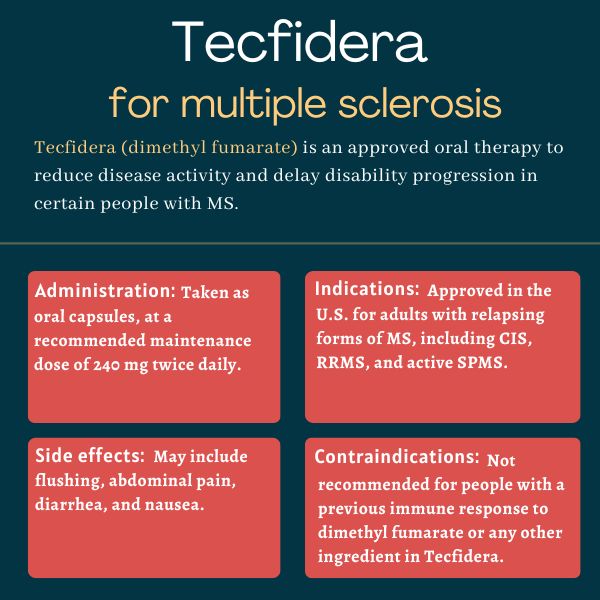
FAQs about Tecfidera
Tecfidera was approved by the U.S. Food and Drug Administration in March 2013 for treating adults with relapsing forms of multiple sclerosis (MS), including clinically isolated syndrome, relapsing-remitting MS, and active secondary progressive MS. Since then, several generic versions have also become available in the U.S.
Available clinical data from the Tecfidera pregnancy registry and other observational studies have not found any increased risk of major birth defects, miscarriage, or other adverse material or fetal outcomes when Tecfidera is used during a pregnancy. Still, it is not definitively established whether Tecfidera could cause harm to an unborn fetus, so patients who become or plan to become pregnant should discuss it with their healthcare team.
Alcohol is not known to directly interact with Tecfidera. However, it could exacerbate disease symptoms or certain medication side effects, so patients should always discuss safe alcohol use with their healthcare providers, who can make the best recommendation for their particular case.
In the clinical trials that supported Tecfidera’s approval, a significant reduction in relapse rates could be observed within about three months of starting treatment. However, every person with multiple sclerosis may respond differently to medications, and there is no standard timeline for when Tecfidera starts to work. Patients are advised to talk with their healthcare team about how Tecfidera can help in their particular case.
Weight gain and hair loss were not reported in clinical trials as side effects of Tecfidera, but some people who received the medication after its approval have experienced hair loss, according to post-marketing reports. Patients should talk with their healthcare team if such events occur.
 Fact-checked by
Fact-checked by 


